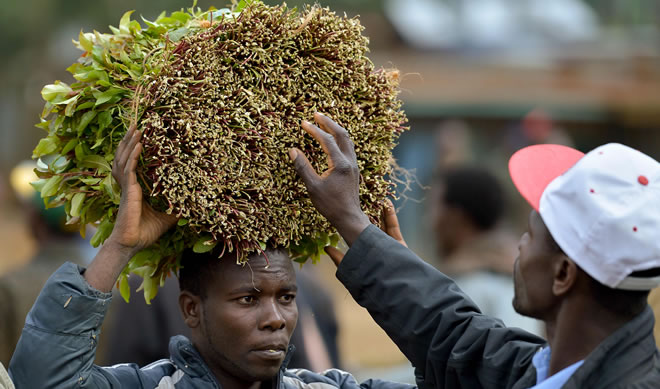
 Abukar Awale Qaad-diid
Abukar Awale Qaad-diid
Tuesday, April 21, 2020
As the COVID19 pandemic rages across the world, what is becoming all too clear is that the most disadvantaged countries with weak or non-existent public health care systems and finite resources will feel the brunt of the disease. Our country, Somalia braces itself for this disease in the coming months as Africa is predicted to be the next epicentre of the disease after Europe.
Our country is unique in the sense that we are recovering from 30 years of state failure which make our institutions and health facilities more fragile and precarious than ever before, impacting on their capacity to meet the monumental challenges of COVID19 before us. To date as we have already recorded over 200 confirmed COVID19 cases and numerous deaths associated with the disease already. As a less developed country, Somalia is even less prepared for this perfect storm than much of the industrialised world which despite its best efforts in coordinating an international response, struggles to slow the awful death toll that continues to grow by the day.
USA, UK, Italy and Spain have all lost (combined) over 60,000 people to the virus with seemignly no end in sight. These rich G7 countries with strong institutions and FUNCTIONING health systems and facilities in place are struggling to contain the virus. One cannot imagine the devastation it will cause n Somalia if the transmission between people increases among our population.
The steps taken by the government to close our airspace quickly is to be applauded as the disease travels with people and under the current context, our open skies are a danger and at the same time a form of protection that needs be fully utilised for the duration of this pandemic. As there is no known vaccine for this virus yet, it would seem this virus will be with us globally for some time, perhaps even beyond next year – and even if vaccination is found, we will be at the back of queue for it due to lack of affordability on our part and likely challenges we face in distribution taking into account the absence of the equivalent of the NHS in Somalia. This means we must consolidate our protective mechanisms and find new ways of doing things in our country. Taking pre-emptive preventative action as they say is invariably better than having to administer a cure. In Somalia's case, given that there is currently no known vaccine for Covid-19 at the present time, this mantra takes on increased significance.
This starts with banning khat throughout the country as the harvesting, selling and markets of this substance PASSES through many hands, which could carry the disease further into our country. Furthermore, in the last three weeks since Somalia closed its space, we have already saved more than $40 million from leaving our shores to Kenya simply through the temporary ban on Khat imports. As an undoubtedly erudite reader, I leave to your imagination as to how this money could be put to better use elsewhere. In my view, this value has the potential to fundamentally change the health and life outcomes of our citizens for the future.
As the holy month of Ramadan is fast approaching in the next couple of days , it is morally vital to continue with the ban of Khat for the sanctity and respect of our religion, giving our people the space to re-evaluate their lives, priorities while also striving and praying for protection from the virus that ravages the world before our very eyes. We should fully utilise the blessing of Ramadan to re-engineer a new kind society and aspiration beyond khat use and abuse. More importantly however, this is a watershed period in our history that provides a golden opportunity for our leaders to once and for all take decisive steps in the dealing with the scourge of Khat.
As witnessed 2013 in UK and 2016 Somalia respectively, Kenya and Khat cartels (in cahoots) will attempt again to dispatch and galvanise a committee of delegates to Mogadishu to lobby for re-opening of our skies for Khat exports to Somalia to resume. Make no mistake, the aforementioned entities are ruthless enough even with the imminent dangers we face with the virus, and will still stop at nothing by lobbying hard at the cost of millions of our citizens, promoting further misery for people’s health outcomes and aspirations. Our political leaders and policy makers must be on the right side of history which will not be kind to those who risk and destroy the life chances of its people for political convenience and external pressure. It is a moment of leadership and courage. Our leaders should not shirk their responsibilities to our people and beyond.
Banning khat is not just a sensible economic decision for Somalia. it has also become an issue of life and death for vast number of our citizens and our general way of life. It can no longer business as usual. Rather It is about our survival and the ramifications of any action or inaction by our leaders on this issue cannot be overstated. I remain expectant rather than hopeful that they will make the right choice in this pivotal moment. Our collective, even national mental health and well-being simply depend on it
Abukar Awale Qaad-diid
The lead Anti-Khat Campaigner
Tweeter@AbukarAwale